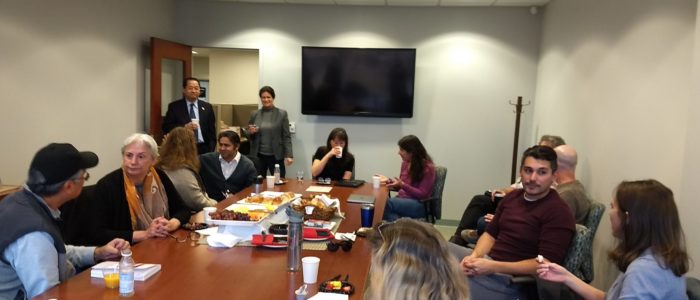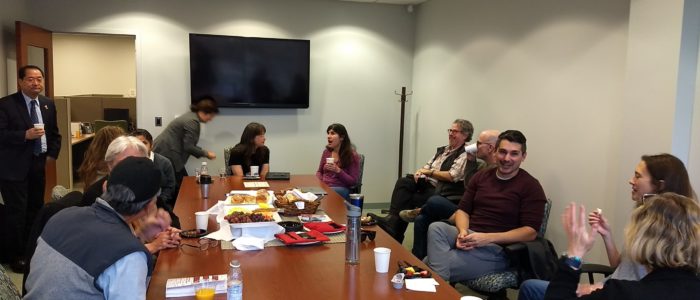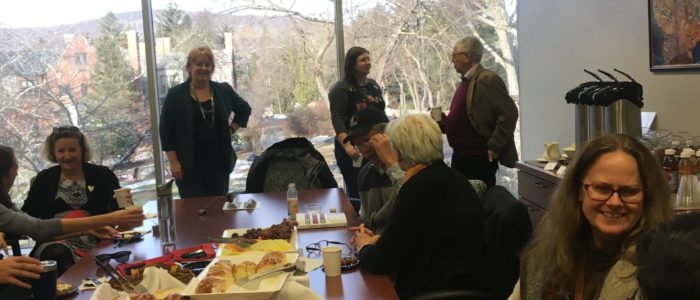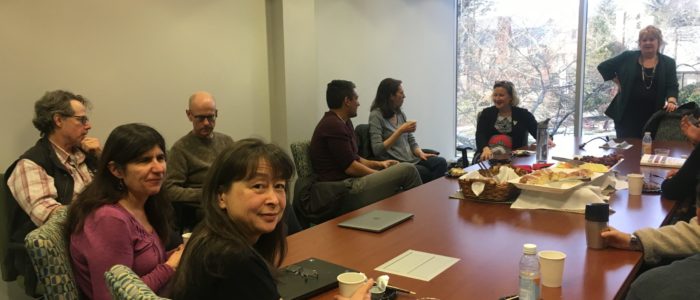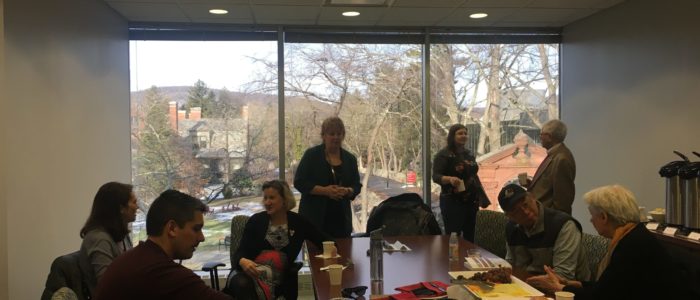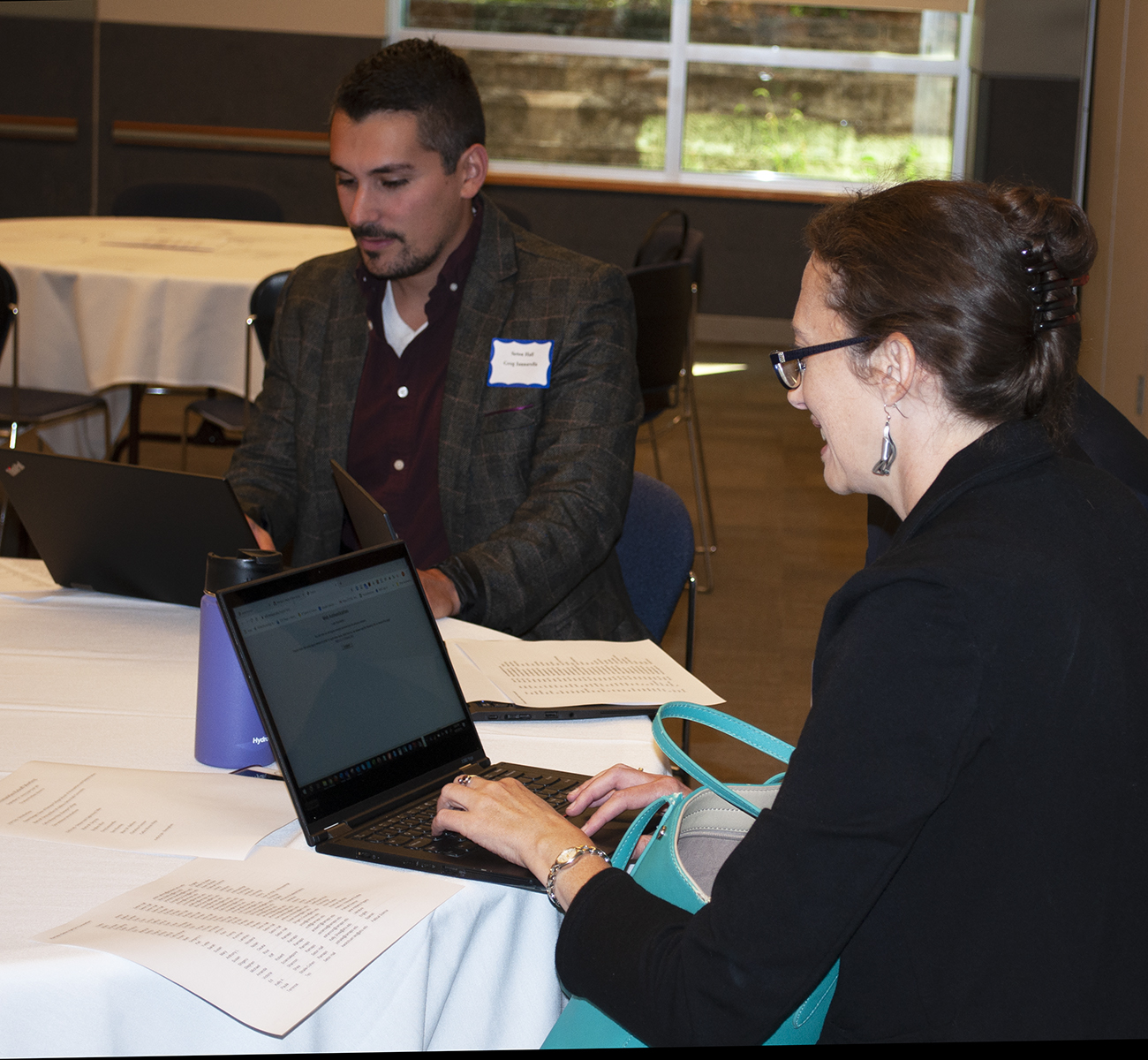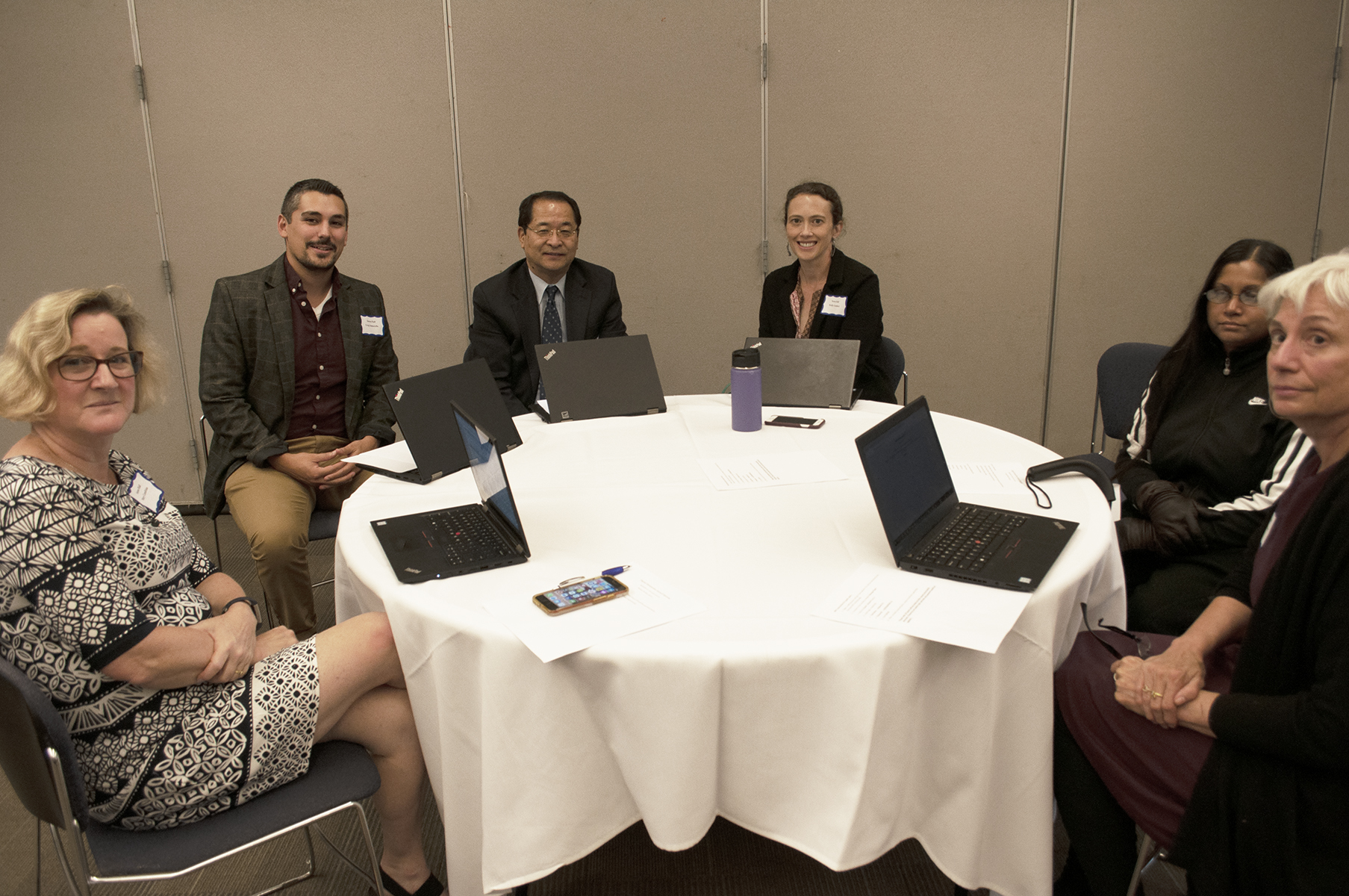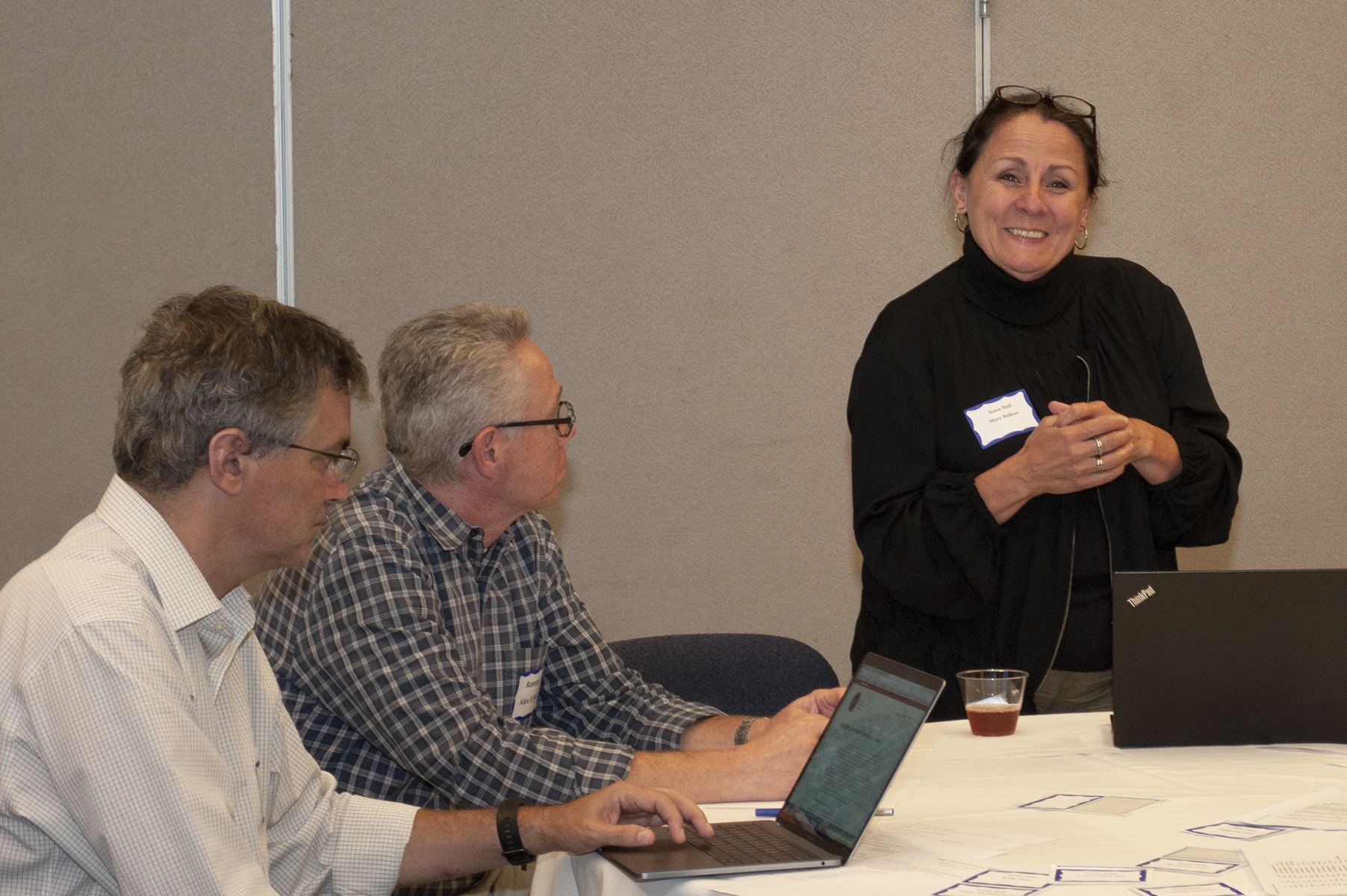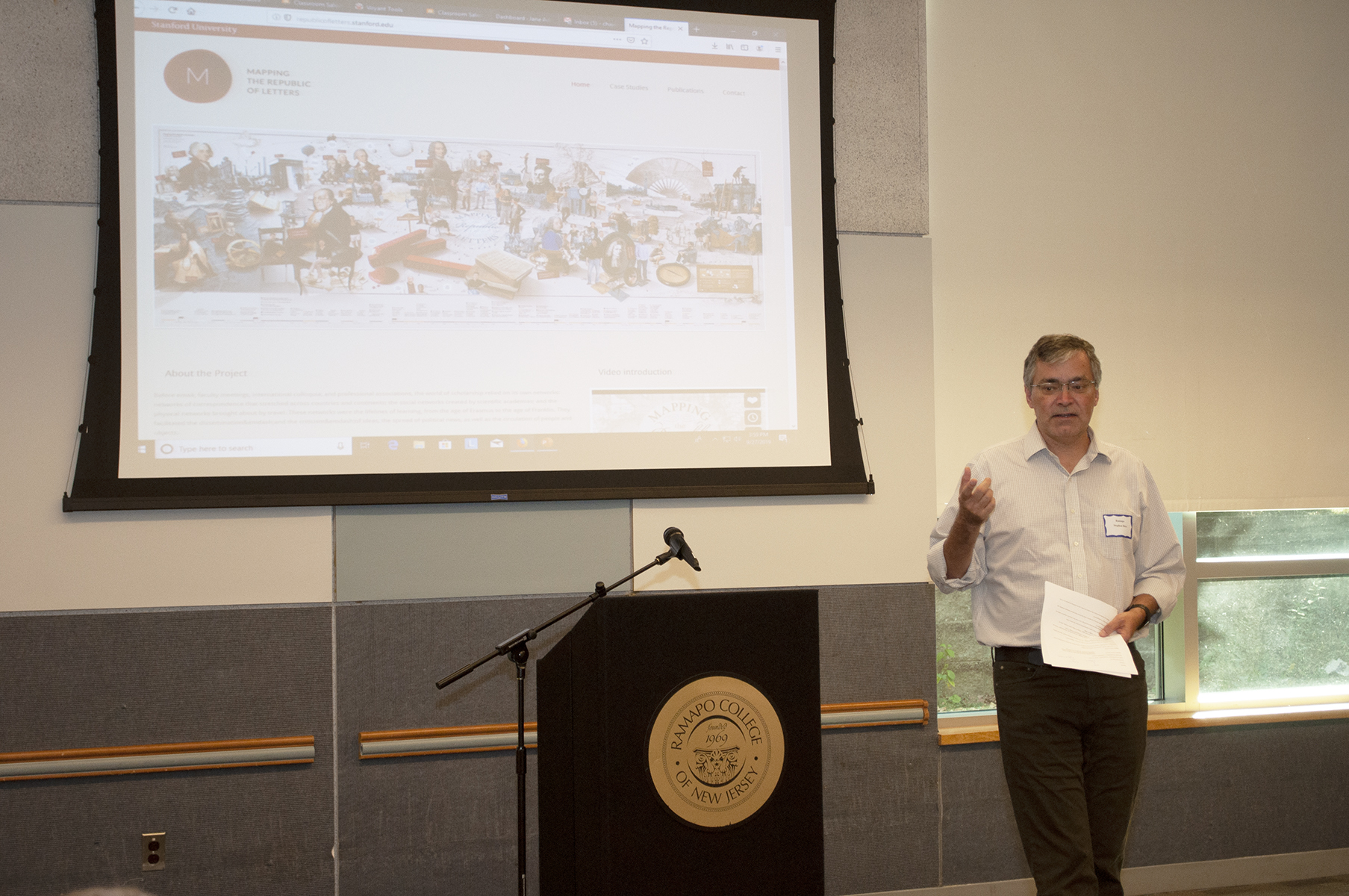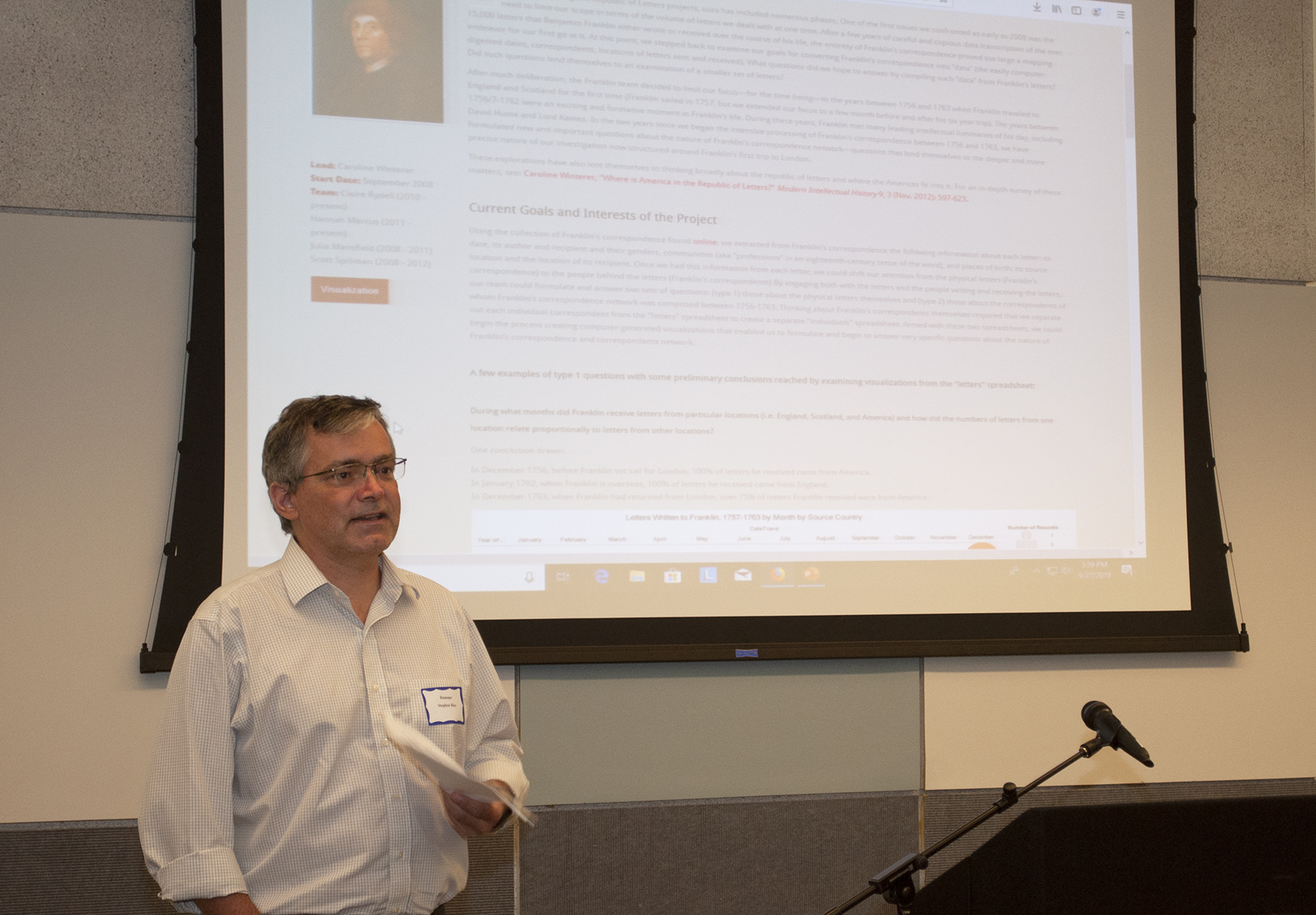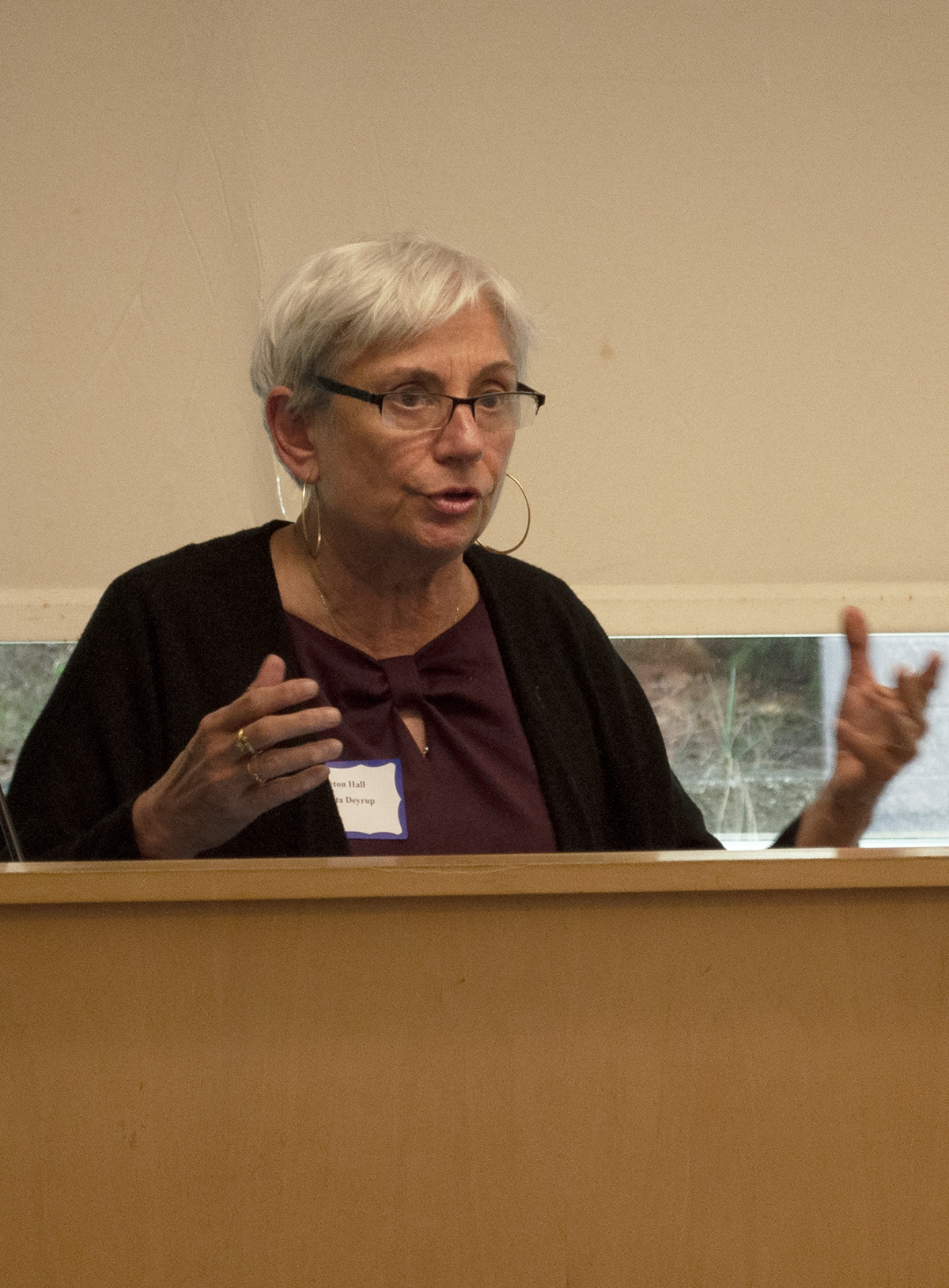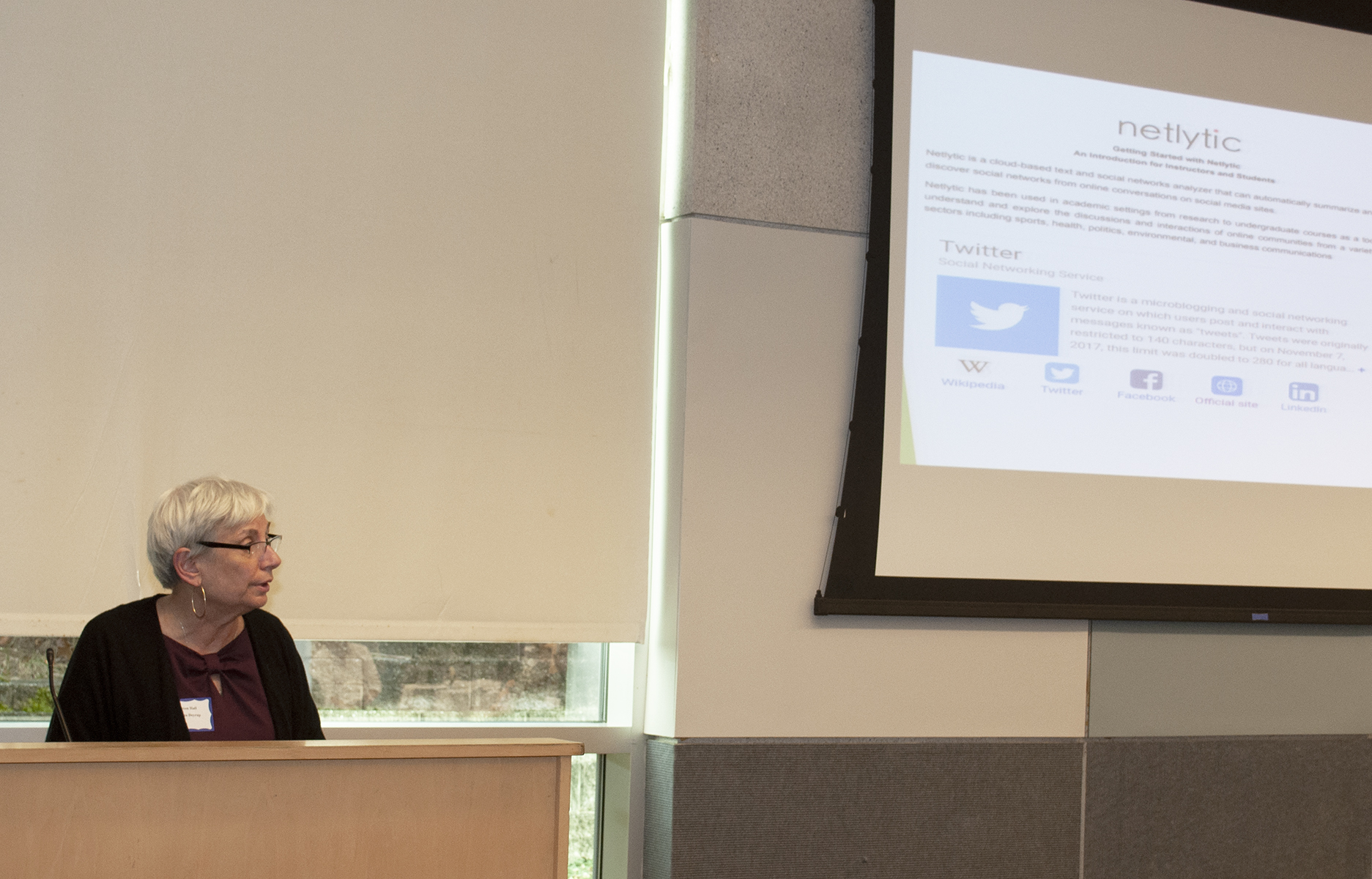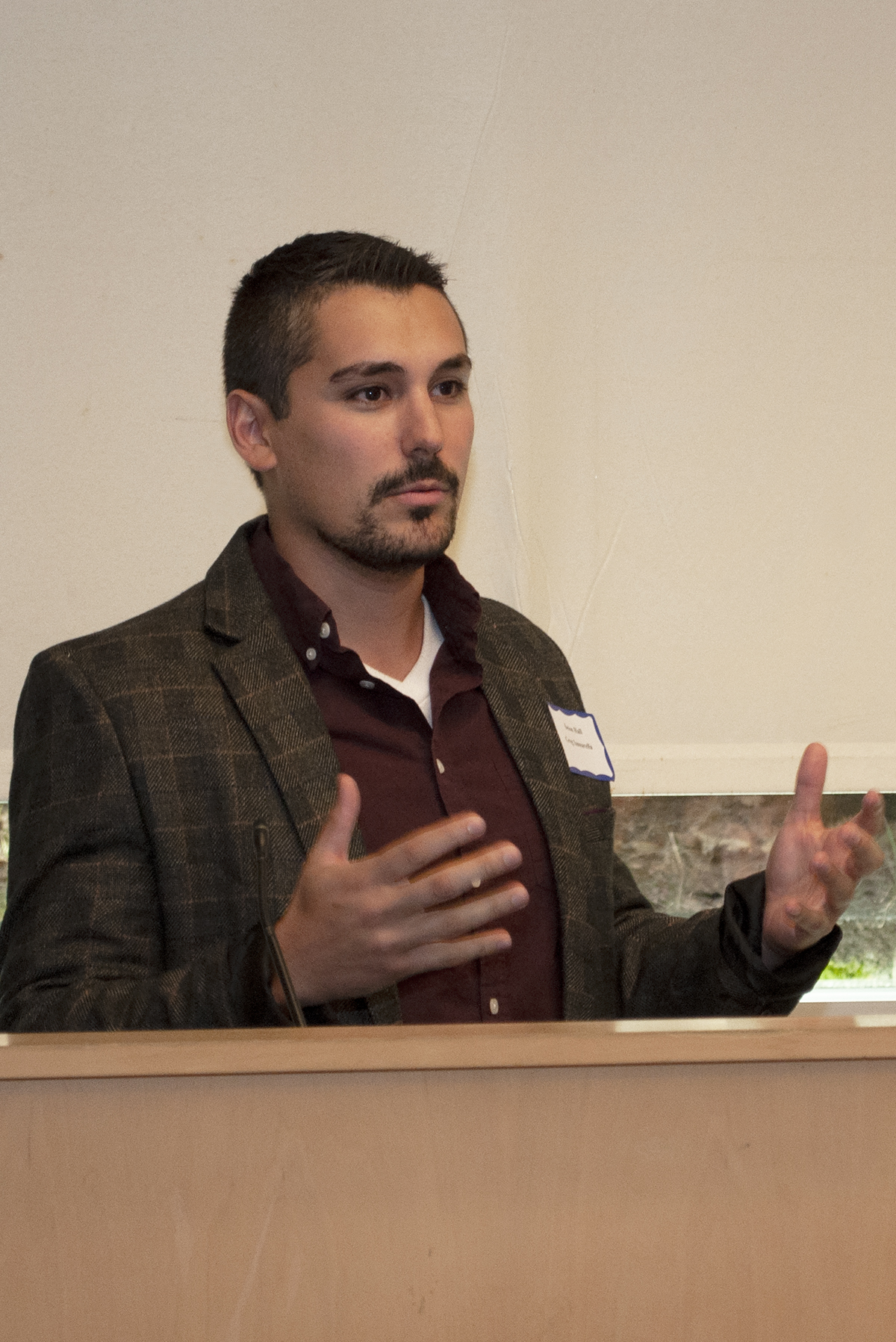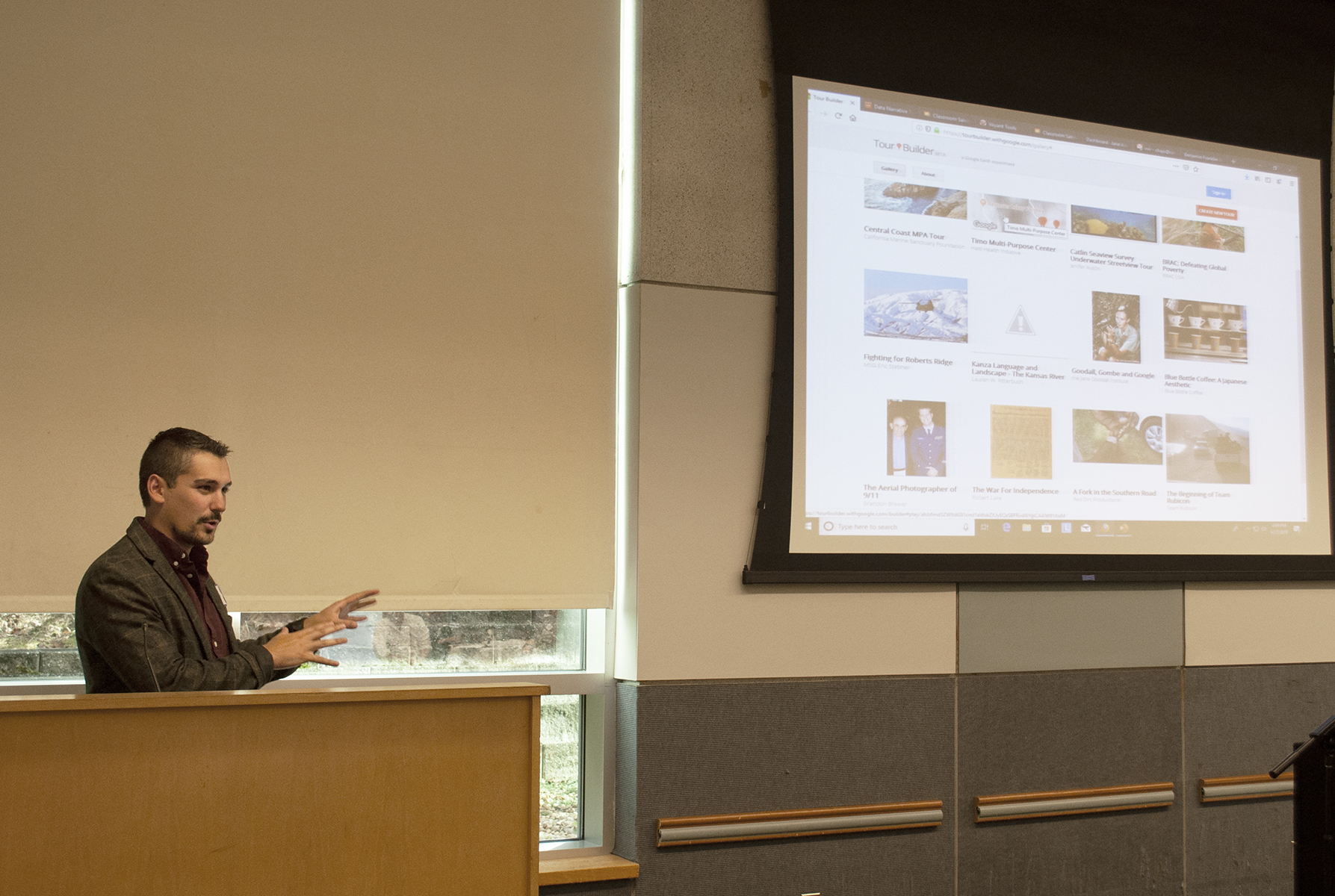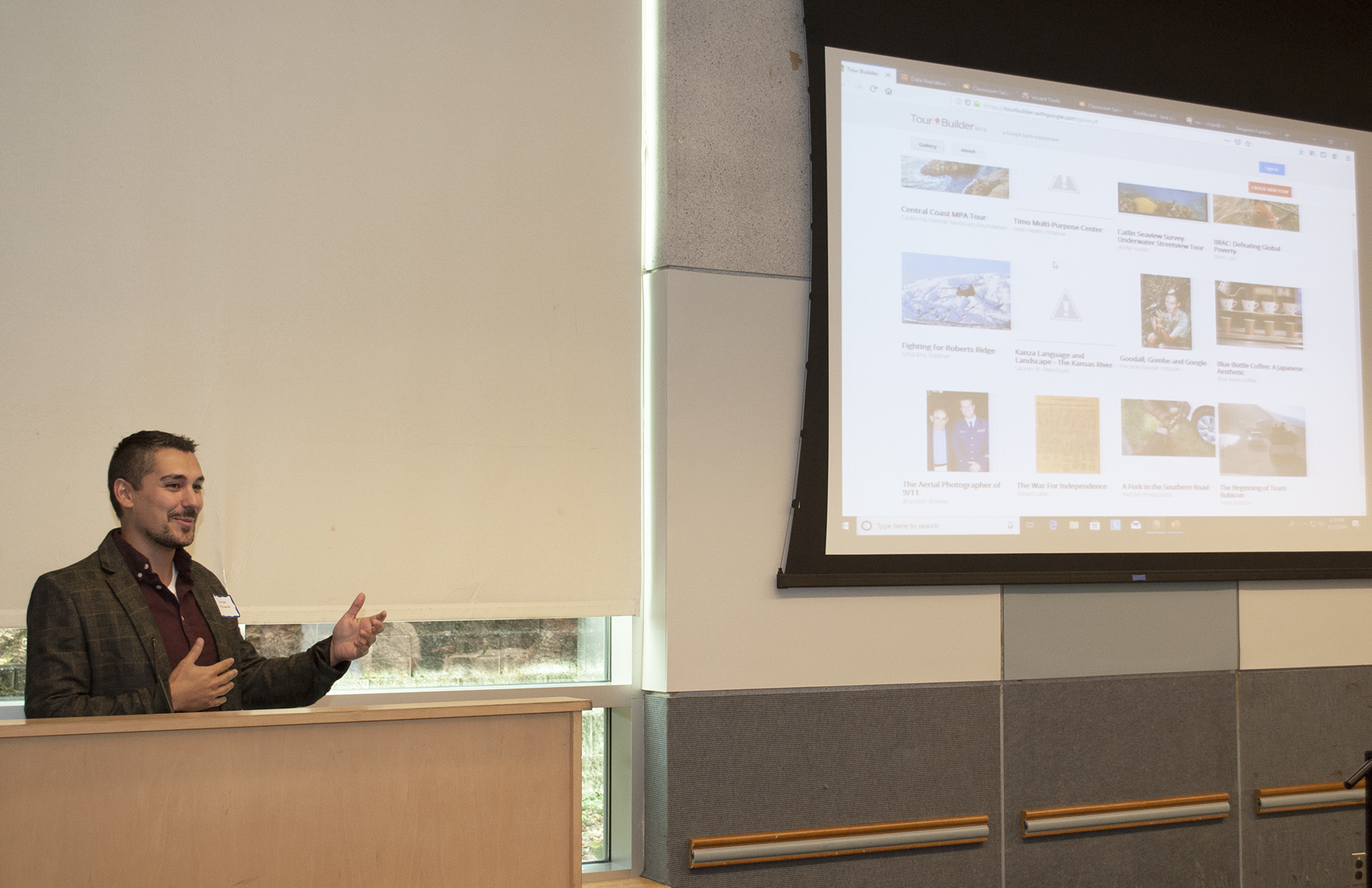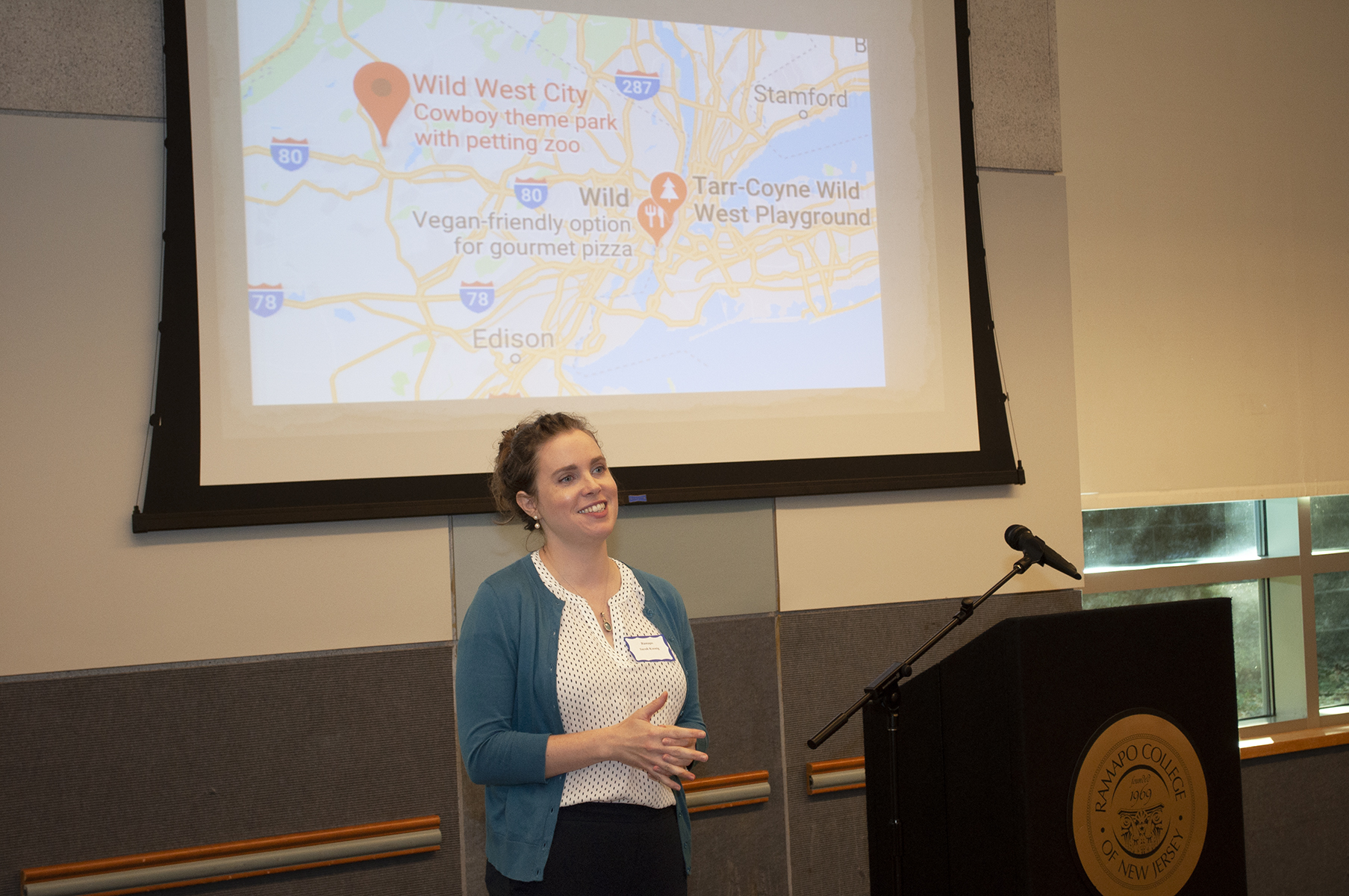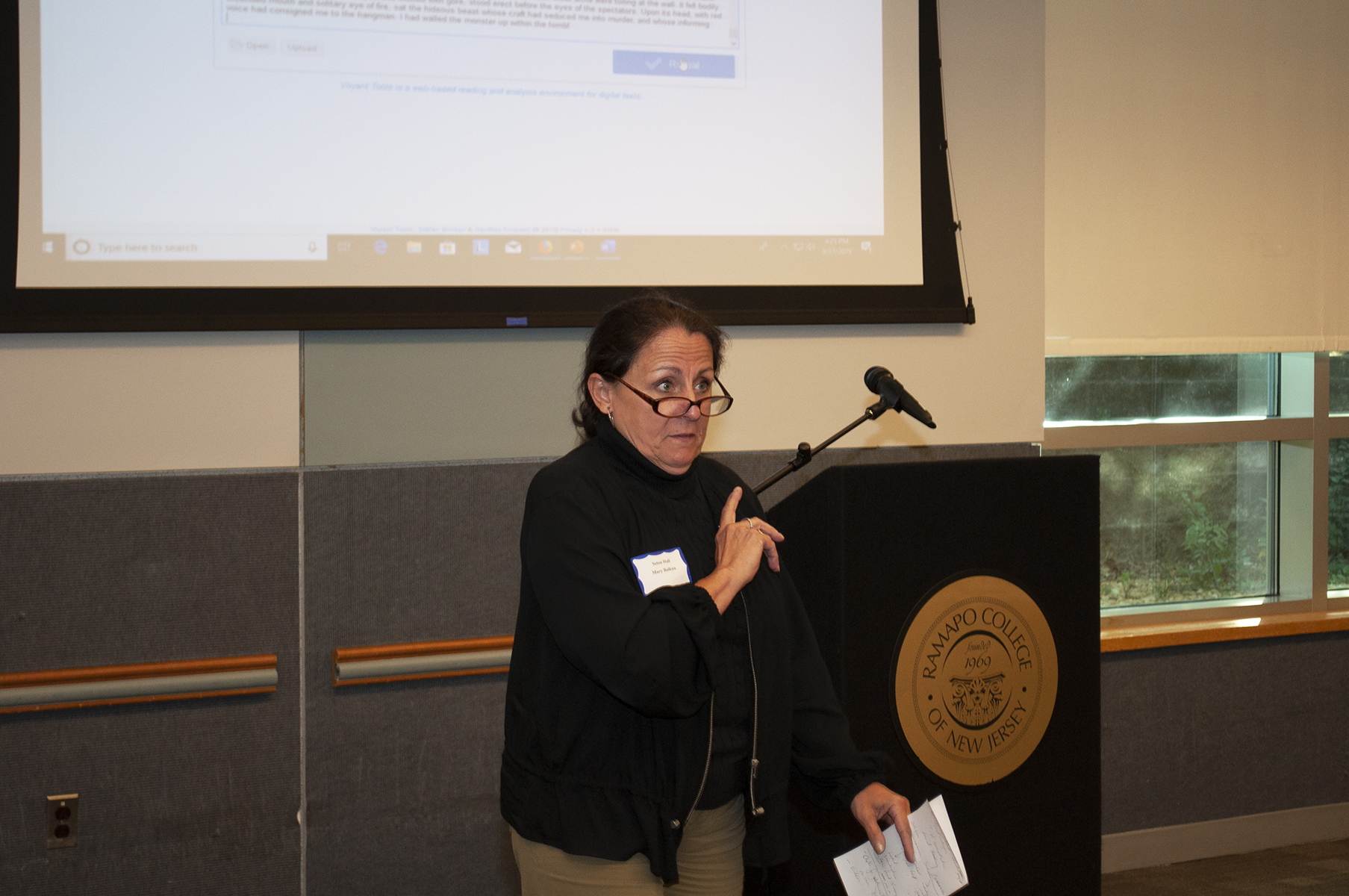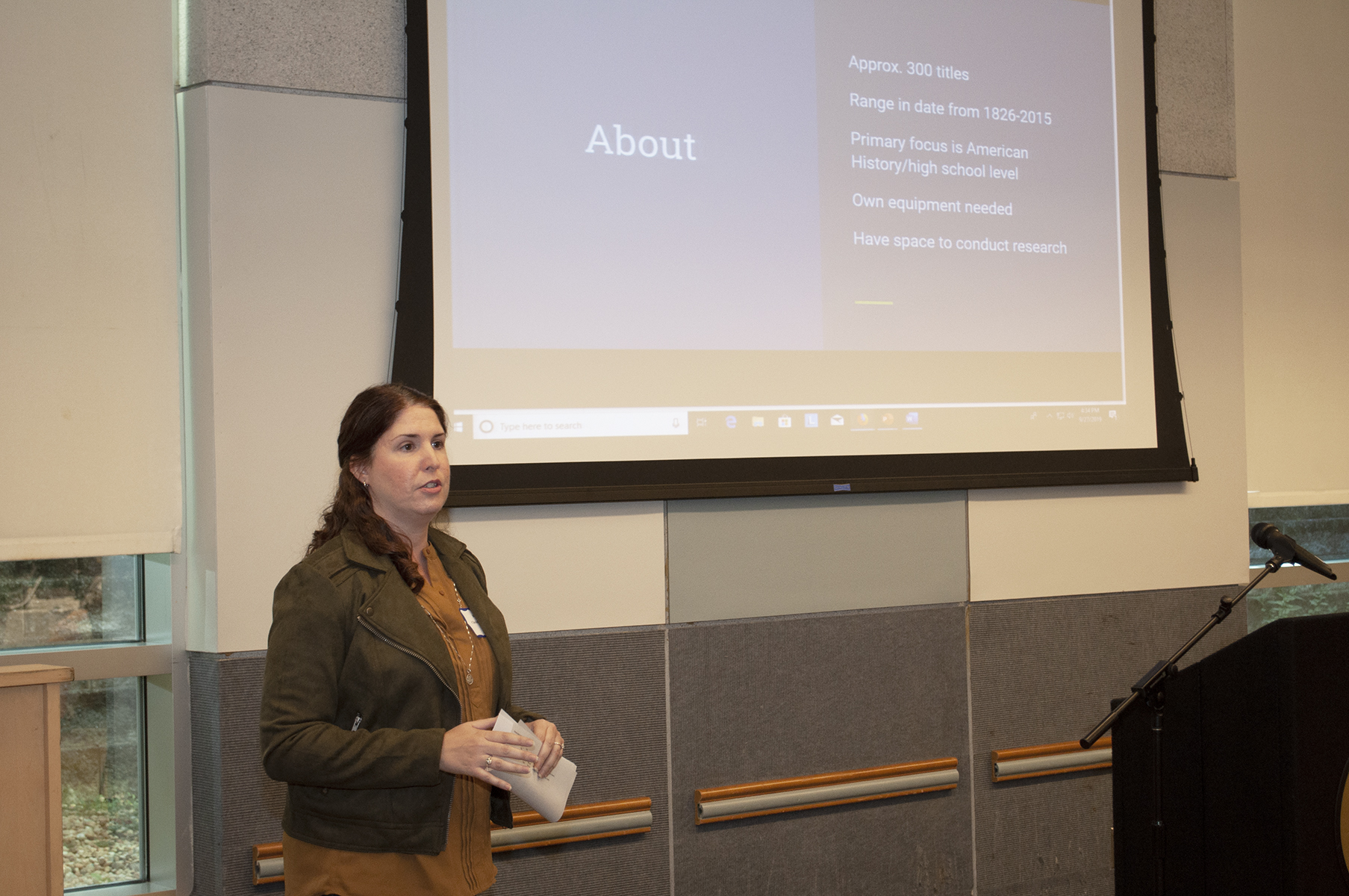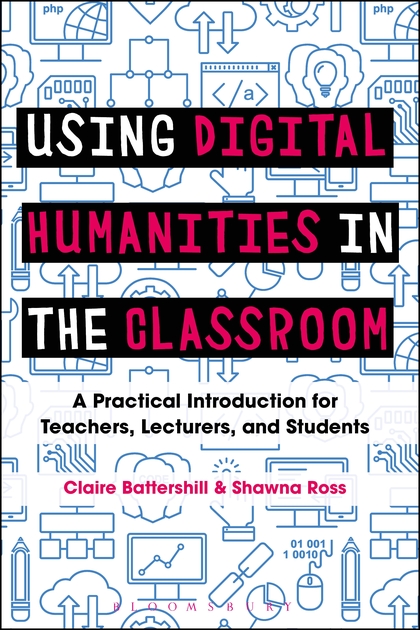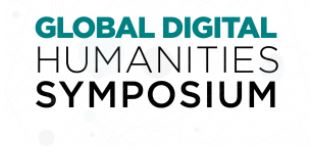We are planning the Spring meetings and I wanted to run another poll to make sure that the best dates haven’t changed.
Author: Cathy Hajo
December 12 @ Ramapo College
Thanks to all who made it to the December 12 workshop. We worked in groups on our assignments, and will keep working in those small groups for a few meetings this Spring terms. If you need a group assignment, please contact Cathy at chajo@ramapo.edu.
DHSI Atlantic Announcement

We are delighted to announce the launch of DHSI Atlantic, a summer school designed to introduce and demystify key concepts from the digital humanities for students and scholars at any stage of their careers. In-keeping with the Digital Humanities Summer Institute at the University of Victoria, courses are taught by internationally-recognized scholars and practitioners with extensive experience in the application and instruction of DH tools and methods.
DHSI Atlantic will be hosted at University College Cork, Ireland, from June 15-19th, 2020. Participants are welcome to enroll in one of three introductory but intensive courses which take place over five days. This year’s course offerings are as follows:
Stylometry with R: Computer-Assisted Analysis of Literary Texts (Dr Jan Rybicki)
Topic Modelling in Digital Humanities (Dr Derek Greene)
Introduction to GIS in the Humanities (Dr Patricia Murrieta-Flores)
The cost of registration is 300 euro per workshop. Please note that all workshops will be taught in English, but the methods can be applied across multilingual contexts.
For more information, see:http://dhsiatlantic.ucc.ie
NYU Abu Dhabi Winter Institute in Digital Humanities

The NYU Abu Dhabi Winter Institute in Digital Humanities is an event for researchers and educators to explore networking opportunities, hands-on courses, presentations, and cultural and academic visits for those interested in the intersection of technology and the humanities. Participants can select one course for the week and undergo an in-depth study of their selection. Seats are limited in order to keep class sizes small. Most courses require no background or technological skills. The Winter Institute will be held from January 19-22, 2020 at the NYU Abu Dhabi Library, in which a map can be found here.
For more information on the courses, expert instructors and registration details, visit the event website here. Questions? Contact nyuad.widh@nyu.edu.
Fees:
Early Bird Registration (up to October 31, 2019) – 350 USD + 5% VAT = $367.50
Regular Registration (up to December 1, 2019) – 500 USD + 5% VAT = $525
NYU global students and staff: registration fee waivers available on a limited basis. Please contact nyuad.widh@nyu.edu to inquire.
Fees cover one course, some meals and transportation to optional excursions.
September 27 Kick Off Meeting @ Ramapo College
Thanks to all who attended our kick-off meeting for the Fall semester. We especially want to thank those who presented lightnig talks– three minutes on the projects that they are working on — that so inspired us.
WWP Advanced Institutes: Word Vectors for the Thoughtful Humanist
In 2018, the Women Writer’s Project received a grant from the NEH Institutes for Advanced Topics in Digital Humanities to support a series of advanced seminars on using word embedding models in teaching and research. This program supports four institutes in 2019–2021:
- An introductory institute focused on research uses of word vectors, using the WWP’s web-based Women Writers Vector Toolkit
- An introductory institute focused on pedagogical uses of word vectors, using the WWP’s web-based Women Writers Vector Toolkit
- An intensive institute focused on research uses of word vectors, offering a thorough, well-scaffolded introduction to RStudio through commented code samples that can be adapted for use in participants’ own work
- An intensive institute focused on pedagogical uses of word vectors, including coverage of RStudio and the challenges of teaching command-line tools in a humanities context
The introductory events will use simple, open-access web tools hosted in the Women Writers Online Lab, while the intensive events will focus on using RStudio and command-line tools. All four institutes will consider how to make and assess arguments about and with text analysis data, and discuss how to assess the validity of methods, data preparation, and tool configuration. After each event, participants will receive support and guidance in implementing these techniques in their home research and teaching environments.
Travel funding is available of up to $500 per participant.
Read more and learn how to apply
The seminar schedule is as follows:
Northeastern University
July 17–19, 2019
Application deadline: March 22, 2019
Notification by April 19, 2019
Hosted by the Digital Scholarship Group
Introductory institute focused on research uses of word vectors
Northeastern University
May 20–22 2020
Application deadline: January 24, 2020
Notification by February 14, 2020
Hosted by the Digital Scholarship Group
Introductory institute focused on pedagogical uses of word vectors
Northeastern University
July 15–17 2020
Application deadline: January 24, 2020
Notification by February 14, 2020
Hosted by the Digital Scholarship Group
Intensive institute focused on research uses of word vectors
Northeastern University
July 2021 (specific date will be determined early in 2021)
Application deadline: March 19, 2021
Notification by April 16, 2021
Hosted by the Digital Scholarship Group
Intensive institute focused on pedagogical uses of word vectors
Word Vectors for the Thoughtful Humanist has been made possible in part by a major grant from the National Endowment for the Humanities: Exploring the human endeavor. Any views, findings, conclusions, or recommendations expressed in this project, do not necessarily represent those of the National Endowment for the Humanities.
Teaching Circle on Digital Humanities
Ramapo’s Faculty Resource Network is offering a teaching circle this semeser
Using Digital Humanities in the Classroom
One of the richest and fastest-growing areas for teaching, research, and scholarship in the humanities is in what has become known as the Digital Humanities. The Faculty Resource Center (with the School of Humanities and Global Studies) would like to invite you to join a Teaching Circle devoted to Ramapo’s Digital Humanities Initiative. Are you interested in incorporating digital tools, digital methods, or technology into your humanities courses? Participants in this teaching circle will read and discuss the following book: “Using Digital Humanities in the Classroom: A Practical Introduction for Teachers, Lecturers, and Students” by Battershill and Ross (books provided by the FRC). Participants in this Teaching Circle will discuss methods of integrating digital technologies, experiential learning, and visual communication into humanities courses. Members serve as informal “discussion leaders” each week but the conversation is typically guided by the group at large.
If you would like to join this teaching circle this semester, please click on the link below to register and reserve your book copy by September 23rd https://www.ramapo.edu/frc/teaching-circles/. If you do not register by this date, you may not be guaranteed a copy of the book/materials during the first few weeks of the teaching circle.
Global Digital Humanities Symposium – Call for Proposals
Call for Proposals
Deadline: November 1
Proposal form
Digital Humanities at Michigan State University is proud to extend its symposium series on Global DH (msuglobaldh.org)
into its fifth year, on March 26-27, 2020. Digital humanities
scholarship continues to be driven
by work at the intersections of a range of distinct disciplines and an
ethical commitment to preserve and broaden access to cultural materials.
In celebration of the 10th anniversary of MSU’s Cultural Heritage
Informatics Program, we particularly encourage proposals along that theme, but as always we strive to showcase DH work in all its forms.
Alongside the expansion of digital humanities in under-resourced and
underrepresented areas, a number of complex issues surface, including,
among others, questions of ownership, cultural theft, virtual
exploitation, digital rights, endangered
data, and the digital divide. DH communities have raised and
responded to these issues, pushing the field forward. This symposium is
an opportunity to broaden the conversation about these issues.
Scholarship that works across borders with foci on transnational
partnerships and globally accessible data is especially welcome.
Additionally, we define the term “humanities” rather broadly to
incorporate the discussion of issues that encourage interdisciplinary
understanding of the humanities.
Focused on these issues of social justice, we invite work at the
intersections of critical DH; race and ethnicity; feminism,
intersectionality, and gender; and anti-colonial and postcolonial
frameworks to participate.
This symposium, which will include a mixture of presentation types,
welcomes 300-word proposals related to any of these issues, and
particularly on the following themes and topics by Friday, November 1,
midnight in your timezone:
• Critical cultural studies and analytics
• Cultural heritage in a range of contexts, particularly non-Western
• DH as socially engaged humanities and/or as a social movement
• Open data, open access, and data preservation as resistance, especially in a postcolonial context
• How identity categories, and their intersections, shape digital humanities work
• Global research dialogues and collaborations within the digital humanities community
• Indigeneity – anywhere in the world – and the digital
• Digital humanities, postcolonialism, and neocolonialism
• Global digital pedagogies
• Borders, migration, and/or diaspora and their connection to the digital
• Digital and global languages and literatures
• Digital humanities, the environment, and climate change
• Innovative and emergent technologies across institutions, languages, and economies
• Scholarly communication and knowledge production in a global context
• Surveillance and/or data privacy issues in a global context
• Productive failure
Presentation Formats:
• 5-minute lightning talk
• 15-minute presentation
• 90-minute workshop
• 90-minute panel
• Poster presentation
• There will be a limited number of slots available for 15-minute virtual presentations
Please note that we conduct a double-blind
review process, so please refrain from identifying your institution or
identity in your proposal.
Submit a proposal here
Notifications of acceptance will be given by December 9, 2019
Using Hypothesis for Annotating Readings
Hypothesis is a tool like Perusall that you can use for annotating websites. A recent blog post, “Comment, reply, repeat: Engaging students with social annotation,” by Alice Fleerackers, Juan Pablo Alperin, Esteban Morales, and Remi Kalir on their experiences is available here.
There is also a video presentation by Juan Pablo Alperin from a recent conference.
For Hypothesis see https://web.hypothes.is/

